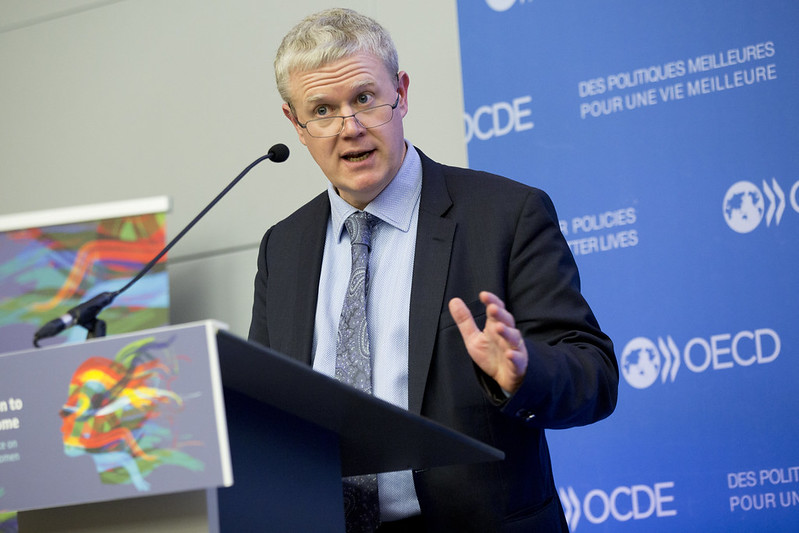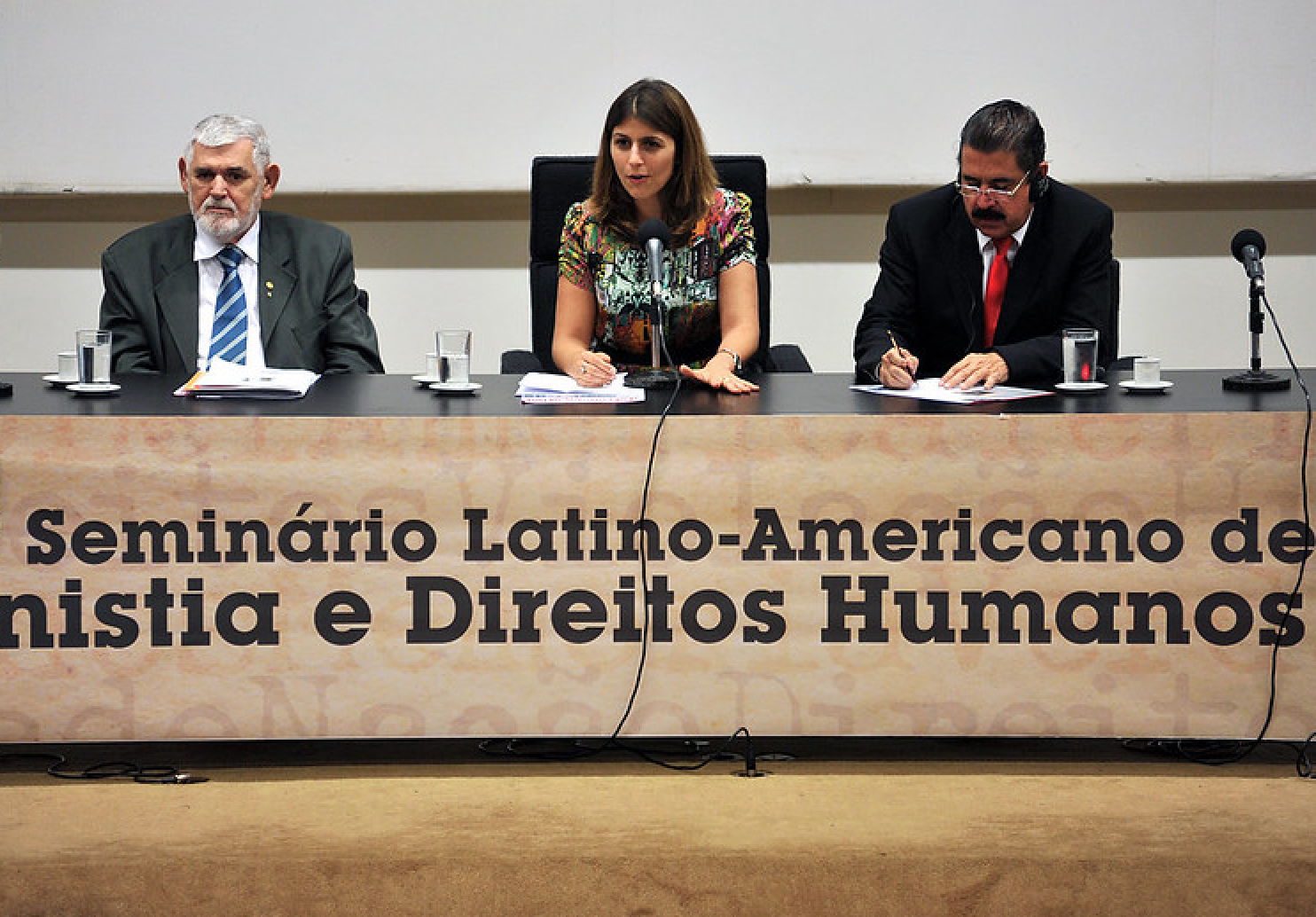Imakay Research Hub
Artigo
The conservative tide in Brazil and beyond
18/11/2022
Jéssica da Silva Duarte, PhD in Political Science (UFRGS)
Brazil is a tropical and coastal country, so it is to be expected that the tides are intense and marked by periodic oscillations. However, this same movement has occurred around the world, even in supposedly more stable places, such as the United Kingdom. The so-called “conservative wave” has hit Western politics hard this century.
In continuity with this same process, after the advance of conservatism associated with the extreme right, these same groups suffered setbacks and lost some of their strength over time. However, it would be hasty to observe only immediately, on the surface, and conclude that such political currents have dissipated. Thus, I suggest replacing the well-known metaphorical political analysis of the “conservative wave” with an understanding of its performance from a broader fluid movement: the tide.
The conservative wave
Perhaps the first major event in this context was the election of Donald Trump in 2016, with his very successful catchphrase: “make America great again”, clearly instrumentalizing a conception that the country needed to be reformed toward past or traditional political, economic, and moral standards. In this strategy, the far right aimed to deconstruct social policies under an eminently nationalistically motivating backdrop.
Although the election of Donald Trump was the most significant event in the advance of American conservatism, other facts contributed to the phenomenon in the country: in 2010, conservative Republicans had the best results since 1993. In 2012, in a first setback, Barack Obama was reelected president of the United States. In 2014 the election results were again very positive for the Republicans, who became the majority in Congress and reversed their dominance over historically progressive states.
Following Trump’s Election, the second significant milestone of Western conservatism in this century was the rise of political figures like Jair Bolsonaro in Brazil and his consequent election to the presidency of the republic in 2018. Bolsonaro drew on an argument around nationalism and nostalgia. On the moral side, Bolsonaro’s conservatism incorporated the debate on sexuality and gender, based on religious assumptions.
The conservative wave in Brazil has also reached the legislative branch with the growth of the religious caucus – electing 180 deputies and four senators who are part of the Evangelical Parliamentary Front. In this caucus, politicians acted based on Christian assumptions in various fields, such as education, health, and security.
In 2018, Brazil not only elected Jair Bolsonaro and religious leaders but also secured significant victories for the underrepresented Social Liberal Party (PSL) to become the second largest bench in the House of Representatives. Similarly, conservative candidates for the Senate and state governments supported by Jair Bolsonaro had significant votes across the country.
As a striking example of the actions of social and politically conservative groups articulated in different countries, we can cite the political movements organized in reaction to the proposal to include sex education and discussion of gender issues in schools. Their main objective was to limit the supposed intervention of the state in education. In Brazil, this banner was defended under the slogan “escola sem partido” (school without party).
In other Latin American countries, the agenda has gained the slogan “Con mis hijos no te metas”. The same movement is present in Peru, Ecuador, Chile, Argentina and Paraguay. A German version of School Without Party was also created by the populist right-wing Alternative for Germany (AfD) party, which encourages students to denounce on a portal (the Neutral Schools) teachers who express political opinions.
Following on the European continent, phenomena such as the growth of nationalist and conservative parties and the migration crisis again go back to the appeal to nationalism, fear, denial and intolerance towards the external or unknown. In 2014, there was significant conservative growth in Europe. The UK, Denmark, and France held between 25% and 30% of their seats in parliament by parties defined as conservative.
Still in the European context, the conservative wave amplified these political manifestations even in territories that already had a significant presence of these groups. Countries such as Poland and Hungary began to have radical conservative and extreme right-wing political leaders, such as Mateusz Morawiecki and Viktor Orbán, as their main representatives.
The conservative refrain
Lo and behold, like the tide, after the advance and the hangover, there is the consequent retraction of similarly overwhelming force. The rise of Trump and the dominance of the Republican Party, even though it was the result of a major and robust conservative movement, was not sustained in the 2020 U.S. presidential election. Democrat Joe Biden was elected, winning key states in the country.
The figure of Trump as president lost the elections, that’s a fact, but the ideological and conservative Republican base remains consolidated. Even after being defeated and silenced on social networks, Donald Trump continued to organize and promote political movements among Americans, such as the invasion of the Capitol on January 6, 2021. Thus, the conservative bloc that gained strength with “Trumpism” does not seem to have been supplanted.
Again following a similar logic, Jair Bolsonaro lost the elections in 2022 in Brazil, even though he had in his favour the public machine, a task force of fake news production, and a group of organized loyal followers. Repeatedly, in contrast, the congress and elected governors in the country point to the survival of conservatism and the far right.
In addition, some of the movements and parties that had grown suddenly and forcefully from 2017 showed signs of weakening. This is the case of the Alternative for Germany (AFD), which is currently the fifth largest force in the German parliament with 79 of the 736 seats. Clearly expressing this ambivalence of the conservative wave and its relative retraction, in France Emmanuel Macron’s victories in the 2017 and 2022 presidential elections are counterbalanced by the expressiveness of the conservative far-right of Marine Le Pen of the National Front.
Finally, an example of the cooling of conservatism or a rebalancing of forces is the recent American elections that took place in November 2022. In this election, the Democrats obtained better results than expected, maintaining a majority in the Senate. With this result, the Democrats and especially Joe Biden have been strengthened to the detriment of the conservative Republicans supported by Trump.
The conservative tide
Even in a movement of retrenchment and a relatively new consolidation of progressive forces, in the depths of Western politics, there is still the organized and robust action of conservative forces.
Speaking of which, we can start by highlighting the work of Capitol Ministries, a conservative Christian group created to evangelize political leaders. The group has been consolidated since 2000 and, during the Trump administration, has gained space within the White House. The articulation of Capitol Ministries occurs predominantly from the action of politicians who still have great legitimacy and power in the party and American politics, such as Mike Pence, Mike Pompeo and Michele Bachmann.
In addition to operations in its country of origin, Capitol Ministries already has operations in Latin America. In Brazil, the operations began during the Temer government and gained space in the government of Jair Bolsonaro. Still in Brazil, despite the defeat of Jair Messias Bolsonaro to Luís Inácio Lula da Silva, the congress and governors elected in the country in 2022 are more aligned to conservatism than to progressive politics; although the extreme right has given way to the political centre.
Overall, only five senators were elected who were in direct opposition to Bolsonaro; in contrast, 22 senators declared “Bolsonaristas” were elected. Among the 513 state deputies elected, more than 250 were associated with Jair Bolsonaro’s reelection campaign. Likewise, in the contests for state government, the extreme right and the centrists won a majority. It is important to highlight the victories of two major supporters of the current president in two key states: Cláudio Castro in Rio de Janeiro and Tarcísio Gomes de Freitas in São Paulo.
In the most recent European context, the victory of a far-right conservative coalition in Italy shows that the conservative advance did not “die on the beach.” Giorgia Meloni of the Italian Brotherhood Party became prime minister of the country claiming the ideological and political heritage of Benito Mussolini and with the familiar slogan of “God, homeland, and family”. Among Giorgia’s main banners are Euroskepticism, anti-immigration policies, and the removal of rights for the LGBTQ community.
Besides Italy, other European countries, such as Sweden, Poland, and Hungary, continue to present a strong and unquestionable protagonism of conservatism. The conservative ideology also continues to be active in Spain, Germany, and France.
Against this backdrop, I suggest that we understand the performance of conservatism in Western politics in this century beyond its waves. Looking for a broader point of view that contemplates all the ebb and flow of the phenomenon. Following this logic, it remains for us to be vigilant in trying to assess and predict the strength of the next shifts.







